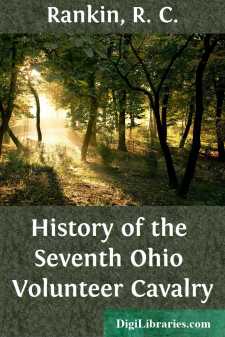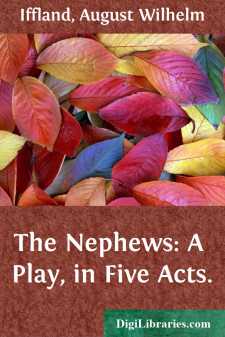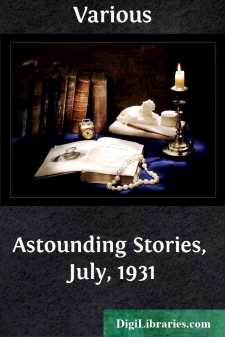Fiction
- Action & Adventure 180
- Biographical 15
- Christian 59
- Classics
- Coming of Age 5
- Contemporary Women 3
- Erotica 8
- Espionage/Intrigue 12
- Fairy Tales, Folklore & Mythology 236
- Family Life 169
- Fantasy 117
- Gay 1
- General 596
- Ghost 32
- Historical 808
- Horror 43
- Humorous 160
- Jewish 25
- Legal 4
- Medical 22
- Mystery & Detective 315
- Political 49
- Psychological 41
- Religious 64
- Romance 159
- Sagas 11
- Science Fiction 730
- Sea Stories 113
- Short Stories (single author) 537
- Sports 10
- Suspense 1
- Technological 8
- Thrillers 2
- Urban Life 31
- Visionary & Metaphysical 1
- War & Military 173
- Westerns 199
Classics Books
Sort by:
CHAPTER I. THE SNAKE AND THE SOUL. When Colonel Matthew Devon de Warrenne, V.C., D.S.O., of the Queen's Own (118th) Bombay Lancers, pinned his Victoria Cross to the bosom of his dying wife's night-dress, in token of his recognition that she was the braver of the twain, he was not himself. He was beside himself with grief. Afterwards he adjured the sole witness of this impulsive and emotional...
more...
by:
Miss Brightwell
CHAPTER I. It was a beautiful May-day morning when George Green rose at an early hour; for it was his birthday, and he had not been able to sleep so long as usual, for counting of the joyful anniversary. "Ten years old, are you indeed, my boy?" said his father, who found Master George eagerly awaiting him in the breakfast parlour. "Yes, papa; and I am to have a whole holiday, and mamma has...
more...
by:
R. C. Rankin
t being suggested that a History of the Seventh Ohio Volunteer Cavalry be written, the honor was conferred upon me. Not being a historian or even a letter writer, I feel myself entirely incompetent to do justice to the Regiment that has done so much good service. In writing a historical account of the of this Regiment, I shall have to rely almost exclusively on memory, owing to the fact that all the...
more...
ACT I. SCENE I. At the Chancellor's House. COUNSELLOR FLEFFEL, LEWIS BROOK, at Breakfast. Enter a Servant. Counsellor (to the Servant). Take away. But, no—let it stand; my father may chuse some: is he returned? Servant. I'll enquire, Sir. [Exit Servant. Counsellor [rising and viewing himself]. We've made a long breakfast. Lewis. But you have eaten nothing. Counsellor. Why, my dear...
more...
by:
Robert Herrick
NO. I. INTRODUCTORY AND EXPLANATORY. (Eastlake has renewed an episode of his past life. The formalities have been satisfied at a chance meeting, and he continues.) … So your carnations lie over there, a bit beyond this page, in a confusion of manuscripts. Sweet source of this idle letter and gentle memento of the house on Grant Street and of you! I fancy I catch their odor before it escapes...
more...
INTRODUCTION The use of abbreviations is as old as the use of alphabets. In inscriptions and on coins and in other places where room is limited they have always been used in order to save space. The words GUILIELMUS QUARTUS DEI GRATIA REX BRITANNIARUM FIDEI DEFENSOR would hardly go around the circumference of a sixpence, three quarters of an inch in diameter. Therefore, we find them written GUILIELMUS...
more...
The Black Boar of Lonesome Water I The population of Lonesome Waterâsome fourscore families in allâacknowledged one sole fly in the ointment of its self-satisfaction. Slowly, reluctantly, it had been brought to confess that the breed of its pigs was not the best on earth. They were small, wiry pigs, over-leisurely of growth, great feeders, yet hard to fatten; and in the end they brought but...
more...
by:
Various
"S O S. S O S. S O S." Three short, three long, three short, the flashes winked from the dark headland. Dan McNally, master and owner of the small and ancient trading schooner, Virginia, caught the feeble flickering light from the island as he strode across the fore-deck. He stopped, stared at the looming black line of land beneath the tropical stars. Again light flashed from a point of rock...
more...
LION’s MASQUERADE.AsAurora stept forth from the gates of the East,With her garland of roses, and dew-spangled vest,A clamour unusual assaulted her ear,Instead of the Lark, and her friend Chanticleer,At least though their voices she sometimes could trace,They seem’d overpower’d by the whole feather’d race:And such was the chirping, and fluttering then,It rouz’dan old Lionasleep in his...
more...
by:
Gustave Dore
ISAIAH. Isaiah (in Hebrew, Yeshayahu, "Salvation of God"), the earliest and most sublime of the four greater Hebrew prophets, was the son of Amoz (2 Kings xix, 2-20; Isaiah xxxvii, 2), and he uttered his oracles during the reigns of Uzziah, Jotham, Ahaz, and Hezekiah, kings of Judah. The dates of his birth and death are unknown, but he lived from about 760 B.C. to about 700 B.C. He was married...
more...











